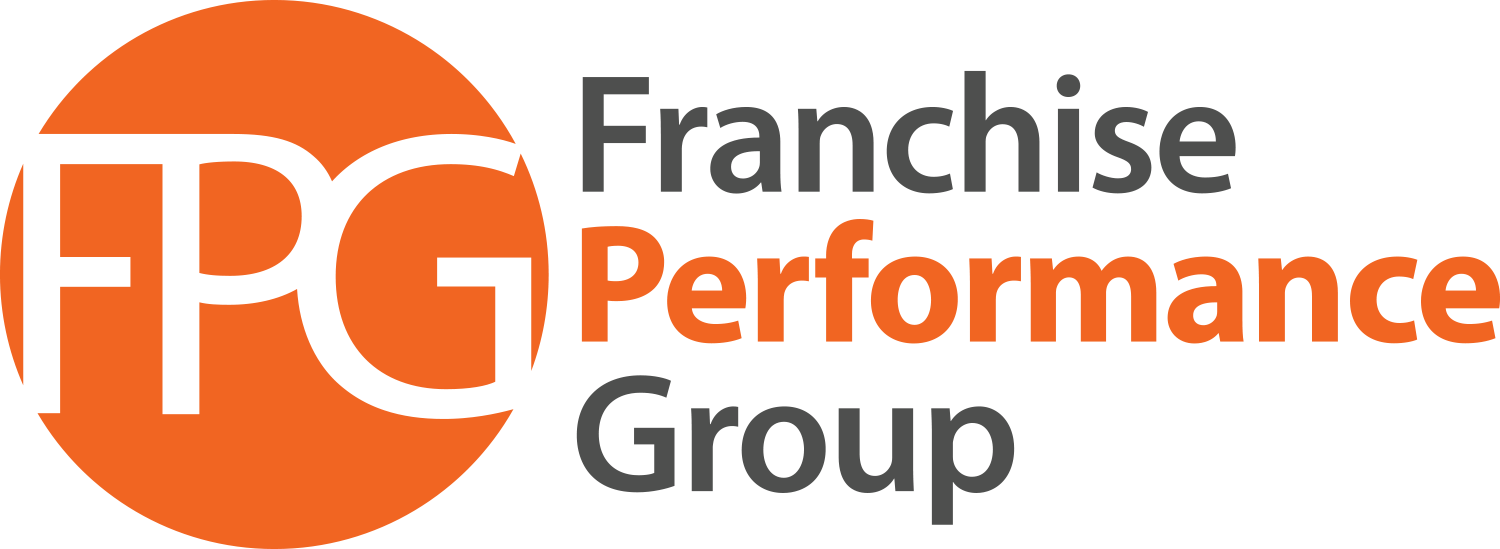
What Franchisors Should Consider When Outsourcing Franchise Sales
Firms specializing in outsourced franchise sales, often called franchise sales organizations or FSOs, have made their way into mainstream franchising. Many franchisors think that hiring an FSO will bring in needed expertise and allow leadership to focus on until-level economics and franchisee performance, leading to higher profitability and greater operational excellence, which also translates into higher enterprise value.
That’s their hope.
However, many franchisors are seeing those hopes dashed. Why? Because too many FSOs either aren’t producing the excellent results they promised or they are extracting far more value than they create.
Franchisors could avoid these mistakes if they knew how to approach the evaluation process, what questions to ask, what to avoid, and when to walk away from the negotiating table.
Much like franchise development itself, choosing an FSO is about finding the right fit to your goals, growth objectives, and company’s culture.
Here is a list of common mistakes franchisors make when hiring outsourced franchise sales companies.
- Total reliance on franchise brokers. Too many franchise sales organizations have no capacity to generate their own leads on behalf of the brand. So they rely exclusively on franchise broker relationships for deal flow. Franchise brokers are not committed to any particular brand. A typical broker group does most of their deals with five concepts or fewer, so it’s hard to get on, and stay on, the short list. These windows of opportunity can close quickly as brokers move on to a competitor or other brands.
Lastly, private equity firms (PE) and other strategic acquirers often discount the value of the brand because the franchisor is seen as not possessing the necessary intellectual property to drive growth. In the eyes of PE, overreliance on brokers and FSOs (forces outside the brand’s control) adds shareholder risk, thus creating the discount. This is often not the case when the brand generates its leads through marketing efforts and then uses an FSO to work these leads. The FSO itself, if fully integrated into the brand, is seen like any other valued relationship and strategic growth partner. It’s when the FSO and franchise broker act in unison as the sole driver or majority driver of deal flow, PE sees risk leading to discounted enterprise value. Depending on earnings and perceived risk, we’ve seen franchisors receive 20% discounts or more on enterprise value.
Additionally, the FSO and the brokers together extract most revenue from initial franchise fees. This may leave a franchisor undercapitalized when it comes time to build infrastructure to get franchisees open, ramped up, and profitable. Additionally, brokers often exude deal pressure on the brand to approve marginal candidates, creating more unnecessary brand risk. Too many underperforming franchisees will often lead to negative validation, tie up support staff in problem solving, and stunt growth before the brand has any real value in the marketplace.
- Hiring a franchise salesperson or organization that isn’t a culture fit. As far as the franchise candidate is concerned, the outsourced franchise salesperson is an extension of your brand. The franchisor owns everything they say and do. With each conversation, the FSO is either adding value or tarnishing the brand.
Meet with prospective franchise recruiters in person or on video before you sign a contract. It doesn’t matter how much you connect with a firm’s owner or business development person — you’re hiring the recruiter that’s working your brand. Recruiters are not all created equal, and their results will widely vary. It’s very common for top recruiters to outperform marginal recruiters by 200%-300% with the same lead flow.
When you interview recruiters, consider role playing. Have them interview you as if you were a prospective franchisee, or ask them to pitch you your own brand. If you were a lead, would you request to take the next step in the process or politely thank them for their time and dismiss the opportunity?
If you don’t think they can connect to your target franchise candidate, if their communication style or skill level isn’t up to your internal standards, then don’t move forward. Take a pass.

- Not compensating recruiters in a way that’s consistent with the franchisor’s growth objectives. Franchisors tend to think commission-only relationships save money and mitigate risk. In reality, they dramatically increase risk and can tarnish the brand.
Professional franchise recruiters earn their value in two ways: first, by recruiting high-quality franchise candidates. Second, by screening out mediocre or weak candidates, thus eliminating potential failures or the possibility for operational problems downstream. When franchisors pay commission only, they put salespeople in a position of recruiting questionable candidates or not getting paid.
Typically, it takes about 120 days or more for a new franchise salesperson to recruit their first franchisee. This means they are working at least four months for free and burning through their savings in the meantime. Just like everyone else, they need income. Sometimes this prompts them to turn a blind eye to red flags and push marginal candidates through the process, creating long-term operational problems for short-term money.
In addition, commission-only salespeople will focus on closing deals when the pipeline gets fuller and won’t give time or attention to new leads coming in. They might have one great month and then not close anything for several more months because they let too many leads fall through the cracks.
If you pay a retainer, you will get a more skilled recruiter who produces results more consistent with your company’s long-term objectives. The retainer should compare with the equivalent of a salary for a full-time franchise salesperson in the same role.
FPG recommends programs where the recruiter’s base is approximately 50% of their total compensation plan on budget.
- Being one of many. Many outsourced franchise salespeople and firms work multiple accounts. If the salesperson assigned to you is working with too many accounts, expect to get substandard results unless yours is the brand they focus on most. Telling brand stories, building rapport, and establishing a culture fit take focus and effort. They often ignore the franchise that is harder to sell in favor of the short putt. Few salespeople can easily switch to one brand after another and do a good job. In our experience, salespeople handling three concepts or more perform well on one or two accounts and poorly at the last.
- Paying outsourced franchise sales company royalties. Never, ever pay royalties. If the FSO steers the conversation towards sharing in the royalties, take that conversation off the table immediately. Your goal is to get the development department to feed into the growth objectives for scalability and long-term brand sustainability. If you agree to royalty sharing, you will wipe out your operating margins, rob your reinvestment capital, decrease your ability to qualify for conventional financing, and potentially lose $8-$12 of equity for every $1 you pay the outsourced company in royalties.
For example:
Assume a 25-unit chain with average unit volume sales of $500,000. Assume the franchisor pays 1% royalty to the FSO.
| Systemwide sales | $12.5MM |
| FSO fees | $125,000 |
| Loss of EBITDA | $125,000 |
| Loss of Enterprise Value (Value = 8X-to-12X EBITDA) | $1-$1.5MM |
Keep in mind, this 1% of revenue represents pure profit to the franchisor, as 100% of these fees would flow through to the franchisor’s bottom line.
This in turn raises the franchisor’s break-even point and thus increases their timeline to break-even, adding additional risk to the franchisor’s investment.
- Treating the outsourced recruiter as a vendor rather than a growth partner.
FPG sees two cultural differences in how franchisors approach outsourced solutions. The first is a vendor relationship akin to a hired gun. The FSO is there to sell. The FSO has no decision-making authority and little influence in how franchisors resource the growth objectives.
Second, the FSO is a strategic growth partner. The FSO and franchisor work together to drive results. The FSO would be seen as a domain area expert and internal franchise development consultant engaged to advise the franchisor on tactics and strategies to achieve growth objectives. From the franchise candidate’s and franchisor leadership perspective, the FSO looks, acts, and feels like an internal hire, but with more experience and a deeper bench.
For instance, FPG works with many PE firms and PE-backed opportunities. PE sees FPG as a both a growth engine and a way to mitigate risk. They value our track record for recruiting and onboarding high-performing franchisees while red-flagging marginal candidates. They value the institutional knowledge we have gained with over 100 years’ combined experience working with over 120 brands. Aside from achieving franchisee recruitment results, we attend leadership strategy sessions, present at board meetings, and advise leadership on franchising trends and how to best scale their organizations to accommodate growth.
- Not understanding their added value. The right growth partner understands the implications and organizational challenges of growth. In other words, they’ve been there. They understand what a company looks like when they scale and can identify breakage and growth-stunting problems before they occur. In other words, find a partner who understands how to create profitable and sustainable growth-building enterprise value and equity, rather than slamming deals through.
When hiring an FSO, the franchisor needs to look at more than how many deals get inked. They need to look at how the FSO impacts revenue, cash flow, and enterprise value. Not all franchise sales are created equal. Too many poor recruitment decisions create operational problems, knock the brand off strategy, and mire the brand in firefighting. Less than 20% of franchisors ever achieve 100 units or more. The franchisor graveyard is filled with brands that sold a bunch of units and failed. If you are looking to hire an FSO, make sure they have a track record of helping brands achieve long term sustainable growth and don’t just “pump and dump,” meaning they sell a bunch of units and then exit.
Need help with franchise sales?
Are you thinking about outsourcing your franchise salesforce? Take a discovery call with us to assess your dilemma and offer some solutions.
Need help with lead generation?
Do you need more qualified leads? FPG has helped more than 120 franchisors grow their brands through improved lead generation, improved franchise sales, effective sales management processes, and executive consulting. If you need help, use the contact form below to reach out and let us know a bit about your challenge. We look forward to helping.
Learn more about FPG’s outsourced franchise sales.
Download your free copy of “Future of Franchising” and other Ebooks
